This article was co-authored by Robert Dhir, MD. Dr. Robert Dhir is a board certified Urologist, Urological Surgeon, and the Founder of HTX Urology in Houston, Texas. With over 10 years of experience, Dr. Dhir’s expertise includes minimally-invasive treatments for enlarged prostate (UroLift), kidney stone disease, surgical management of urological cancers, and men’s health (erectile dysfunction, low testosterone, and infertility). His practice has been named a Center of Excellence for the UroLift procedure, and is a pioneer in non-surgical procedures for ED using his patented Wave Therapy. He earned his undergraduate and medical degrees from Georgetown University and was awarded honors in pre-medical studies, urology, orthopedics, and ophthalmology. Dr. Dhir served as chief resident during his urological surgical residency at University of Texas at Houston / MD Anderson Cancer Center in addition to completing his internship in general surgery. Dr. Dhir was voted Top Doctor in Urology for 2018 to 2019, one of the top three Best Rated Urologists in 2019 & 2020 for Houston Texas, and Texas Monthly has named him to the 2019 & 2020 Texas Super Doctors Rising Stars list.
There are 7 references cited in this article, which can be found at the bottom of the page.
This article has been viewed 36,660 times.
In general, the average person urinates between six and seven times in a 24-hour period, but anywhere between four to 10 can still be healthy.[1] Because the frequency of your urination depends on several factors, you will need to track yours for at least three days to determine if you are urinating too often. If you are urinating more than twice per night then you may need to see a urologist or your primary care doctor. You should also see your doctor if you experience pain while urinating, fever, an uncontrollable bladder, or trouble urinating.
Steps
Tracking Your Frequency
-
1Purchase a measuring cup. You will need this in order to accurately measure and track your urine output. You can purchase a urination-measuring cup from your local pharmacy. Most pharmacies and drug stores carry urinals for men to measure their urine output, as well.[2]
- Measuring cups for urination measure the volume of your urine in cubic centimeters (1 ml = 1 cc).
-
2Keep a fluid diary. Each time you use the restroom, record the time of day, how much you urinated, and your fluid intake and type. For your fluid intake, measure how many ounces you drink between trips to the bathroom. Keep a record for at least three days where a day equals a 24-hour period. The days do not need to be consecutive; however, pick days that will be easy for you to record.[3]
- By measuring out your liquids before consuming them, you can accurately calculate your fluid intake. Use measuring cups to measure your fluid intake.
- For example, write: 10 a.m., 3 cc, 8 oz of tea.
- You can also record your urgency level on a scale of 1 to 3 where 1 is mild, 2 is moderate, and 3 is severe.
Advertisement -
3Tabulate your number of trips to the bathroom. Urination frequency during the day should be tracked separately from urination frequency during the night.You will also need to calculate the volume of your fluid intake. Do this for each 24-hour period. Taken together, compare these results to the urination frequency of an average adult. These results will help you or your doctor determine if your urination frequency and volume is normal.
- For example, urinating eight to nine times while consuming 2,000 ml of fluid during a 24-hour period is considered normal.
-
4Download an app. Applications like Pee Tracker and iP Voiding Diary can help you track your urination frequency and volume, as well as fluid intake. Applications are helpful alternatives if you do not want to manually fill out a diary or chart.
- However, you will still need to purchase a measuring cup to measure the volume of your urine.
Defining Normal
-
1Be aware of urinating more than eight times during the day. The average person urinates about six to seven times in a 24-hour period. It is still normal to urinate eight times during the day and once during the night. Urinating more than twice during the night is not normal, however.
- Typically, you should be able to hold your bladder for about 3-4 hours at a time.[4]
- If you're having to adjust your habits based on going to the bathroom often—like having to know where a bathroom is as soon as you arrive at a new place—it's probably time to talk to your doctor about the problem.[5]
- The average person does not urinate more than two cups every two hours, or more than 10 times after drinking two liters.
-
2Expect more frequent urination if you are older. As you get older, the tissues in your bladder become tough, and as a result, are less flexible. Additionally, you bladder muscles get weaker as you age. Combined, these factors can cause older individuals, i.e., 55 years and older, to urinate more frequently.[6]
- Contact a doctor if you urinate more than twice during the night.
-
3Be mindful that medications and diuretics can affect urination frequency. If you are taking medications, consider the effects these medications can have on your urination frequency. Double-check the side effects with your doctor. Additionally, diuretics like caffeine can irritate your bladder causing you to urinate frequently.[7]
- By reducing your caffeine intake, you can reduce your urination frequency.
- Alcohol is also a bladder irritant that can cause you to urinate frequently.[8]
-
4Be aware of volume. While you are tracking the frequency of your trips to the bathroom, you should also be tracking the volume of urine you produce. If you are urinating more than 2.5 liters (2,500 cc or ml) per day, then you may have an excessive amount of urine, known as polyuria. This should be addressed by your doctor, as the underlying cause could be serious (such as diabetes or kidney problems).[9]
-
5Calculate your appropriate fluid intake. Drinking too much water, juice, and other liquids relative to your size may also cause you to urinate frequently. The amount of liquids you should drink per day depends on your weight. Calculate your appropriate fluid intake by multiplying your weight by 0.5. The number you arrive it is how many ounces you should be drinking per day.
- For example, if you weigh 120 pounds, then multiply 120 by 0.5. This equals 60. Therefore, you should be drinking 60 ounces of liquids per day.
- If you work out, add 12 ounces of liquids for every 30 minutes you exercise. So if the person in the above example exercises for 30 minutes, they should be drinking 72 oz total (60 + 12 = 72).
Determining the Cause
-
1Monitor how many caffeinated beverages you consume. Because caffeine is a diuretic, consuming coffee, tea, sodas, and other caffeinated beverages can cause you to urinate frequently. Additionally, some drugs and medications have diuretic-like symptoms, for example medications that treat high blood pressure.[10]
- Alcohol is another type of drug that could be causing you to urinate frequently.
-
2Retain your urine longer. While some people use the restroom at the slightest urge, others wait until their bladders are a little fuller before using the restroom. For the individuals that go at the slightest urge, you can train your bladder to hold your urine longer.
- Train your bladder by waiting until the urge becomes strong before using the restroom. If the urge becomes painful then you are waiting too long. Increase your bladder’s tolerance gradually over a four-week period. This is only recommended for individuals who do not have incontinence issues.
- Kegel exercises may also help you retrain your bladder.
-
3Determine if you have an overactive bladder. The symptoms of an overactive bladder include urinating frequently, inability to postpone the need to urinate (urinary urgency), urine leakage (incontinence), and urinating more than twice during the night. Consult your doctor if these symptoms apply to you.[11]
- Weak pelvic muscles, nerve damage, medication, caffeine, a urinary tract infection, excess weight, and estrogen deficiency can all cause your bladder to become overactive.
-
4Contact your urologist. If your urination frequency is interfering with your daily routine and you are unsure as to why the frequency has increased, then consult your urologist. Bring your fluid chart with you and discuss your symptoms with your doctor. Your urologist will be able to diagnose you based off of your symptoms and other factors.
- Contact your urologist immediately if you experience pain when urinating, pain in your abdomen or groin, loss of bladder control, dark brown urine, blood in the urine, fever, and trouble urinating.
Expert Q&A
Did you know you can get expert answers for this article?
Unlock expert answers by supporting wikiHow
-
QuestionHow do I know if I'm peeing too much?
 Robert Dhir, MDDr. Robert Dhir is a board certified Urologist, Urological Surgeon, and the Founder of HTX Urology in Houston, Texas. With over 10 years of experience, Dr. Dhir’s expertise includes minimally-invasive treatments for enlarged prostate (UroLift), kidney stone disease, surgical management of urological cancers, and men’s health (erectile dysfunction, low testosterone, and infertility). His practice has been named a Center of Excellence for the UroLift procedure, and is a pioneer in non-surgical procedures for ED using his patented Wave Therapy. He earned his undergraduate and medical degrees from Georgetown University and was awarded honors in pre-medical studies, urology, orthopedics, and ophthalmology. Dr. Dhir served as chief resident during his urological surgical residency at University of Texas at Houston / MD Anderson Cancer Center in addition to completing his internship in general surgery. Dr. Dhir was voted Top Doctor in Urology for 2018 to 2019, one of the top three Best Rated Urologists in 2019 & 2020 for Houston Texas, and Texas Monthly has named him to the 2019 & 2020 Texas Super Doctors Rising Stars list.
Robert Dhir, MDDr. Robert Dhir is a board certified Urologist, Urological Surgeon, and the Founder of HTX Urology in Houston, Texas. With over 10 years of experience, Dr. Dhir’s expertise includes minimally-invasive treatments for enlarged prostate (UroLift), kidney stone disease, surgical management of urological cancers, and men’s health (erectile dysfunction, low testosterone, and infertility). His practice has been named a Center of Excellence for the UroLift procedure, and is a pioneer in non-surgical procedures for ED using his patented Wave Therapy. He earned his undergraduate and medical degrees from Georgetown University and was awarded honors in pre-medical studies, urology, orthopedics, and ophthalmology. Dr. Dhir served as chief resident during his urological surgical residency at University of Texas at Houston / MD Anderson Cancer Center in addition to completing his internship in general surgery. Dr. Dhir was voted Top Doctor in Urology for 2018 to 2019, one of the top three Best Rated Urologists in 2019 & 2020 for Houston Texas, and Texas Monthly has named him to the 2019 & 2020 Texas Super Doctors Rising Stars list.
Board Certified Urologist & Urological Surgeon
References
- ↑ https://www.bladderandbowelfoundation.org/bladder/bladder-conditions-and-symptoms/frequency/
- ↑ http://www.med.umich.edu/1libr/urology/FrequencyandVolumeChart.pdf
- ↑ http://www.med.umich.edu/1libr/urology/FrequencyandVolumeChart.pdf
- ↑ Robert Dhir, MD. Board Certified Urologist & Urological Surgeon. Expert Interview. 12 October 2020.
- ↑ Robert Dhir, MD. Board Certified Urologist & Urological Surgeon. Expert Interview. 12 October 2020.
- ↑ https://medlineplus.gov/ency/article/003140.htm
- ↑ https://my.clevelandclinic.org/health/diseases/15533-urination--frequent-urination
- ↑ https://my.clevelandclinic.org/health/diseases/15533-urination--frequent-urination
- ↑ https://medlineplus.gov/ency/article/003146.htm
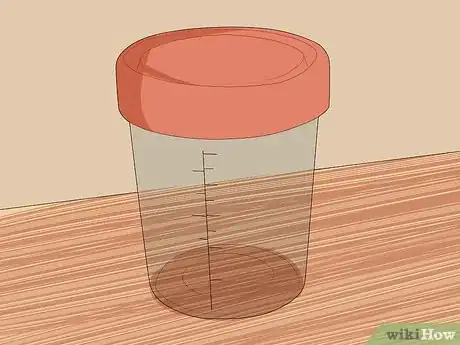
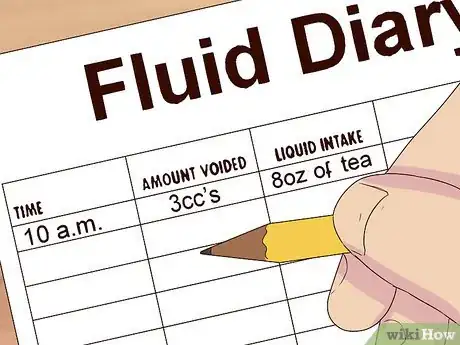




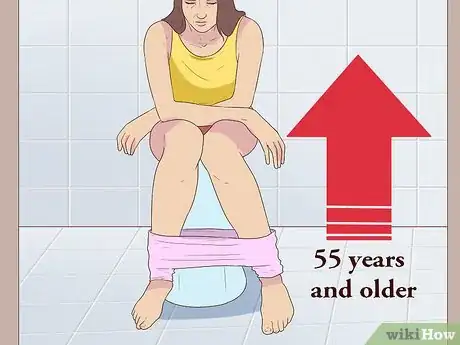



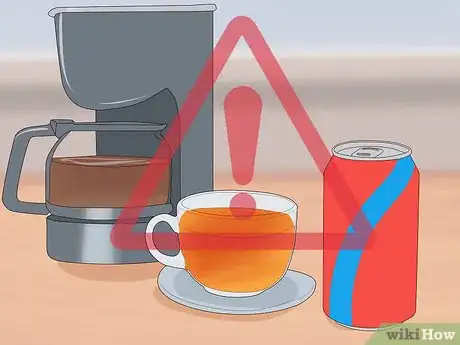
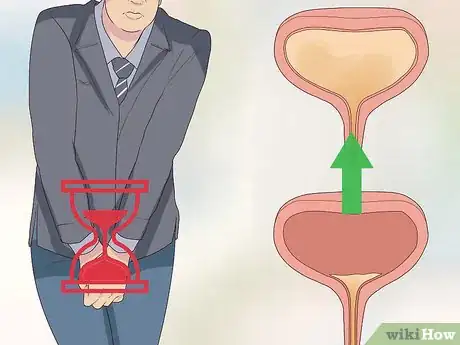
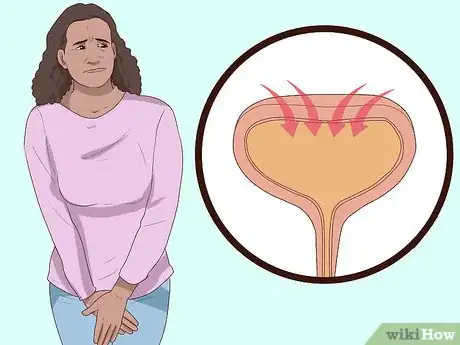





















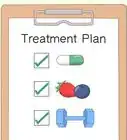






































Medical Disclaimer
The content of this article is not intended to be a substitute for professional medical advice, examination, diagnosis, or treatment. You should always contact your doctor or other qualified healthcare professional before starting, changing, or stopping any kind of health treatment.
Read More...